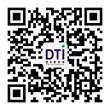German LFGB testing process for silicone products
Date:2025-06-18 09:25:19 Classification
:【question】 Visits:
German LFGB certification is the abbreviation of the German Food and Daily Necessities Management Law, which is used to ensure that products in contact with food will not cause contamination to food, thereby ensuring the food safety of consumers. The following is a detailed process for silicone products to undergo German LFGB testing:
1. Consultation and preparation
- Consultation: The applicant provides product pictures and information, and consults the testing agency about the relevant requirements and procedures for LFGB certification.
- Information preparation: Provide a component analysis report of the product, including the type of silicone material, the substance and content of additives, and possible harmful substances.
2. Quotation and application
- Quotation: The testing agency determines the test items based on the information provided by the applicant and quotes the applicant.
- Application confirmation: After the applicant confirms the quotation, fill in the test application form and pay the fee.
- Sample submission: Send the sample to the testing agency. Usually, multiple samples need to be submitted to ensure the accuracy of the test.
3. Laboratory testing
- Sample preparation: Select a suitable silicone material sample and determine the test method and conditions.
- Test items:
- Dissolution test: Test the substances dissolved from silicone materials under simulated food contact conditions to evaluate their impact on food safety.
- Heavy metal test: Test whether there are heavy metal substances such as lead, cadmium, and mercury in silicone materials to ensure that they do not exceed the legal limit.
- Hazardous substance test: Test whether silicone materials contain harmful substances such as flame retardants, plasticizers, and solvent residues.
- Test cycle: Usually takes 5-7 working days, depending on the number and complexity of samples.
4. Result analysis and report
- Result analysis: The laboratory analyzes the test results to ensure the accuracy and reliability of the test results.
- Report writing: Write a detailed test report based on the test results, and the report should include detailed information and results of all test items.
- Report review: The testing agency reviews the report to ensure that it complies with German food regulations.
5. Certification and certificate issuance
- Certification: If the test results meet German food regulations, the testing agency will issue a LFGB test report.
- Certificate issuance: Issue a qualified German LFGB certificate that complies with LFGB testing to prove that the product meets German food contact safety requirements.
Through the above process, silicone products can obtain German LFGB certification to ensure their safety in food contact, thereby smoothly entering the German and EU markets.




 Shen Gongwang Security: 44030602006947
Shen Gongwang Security: 44030602006947